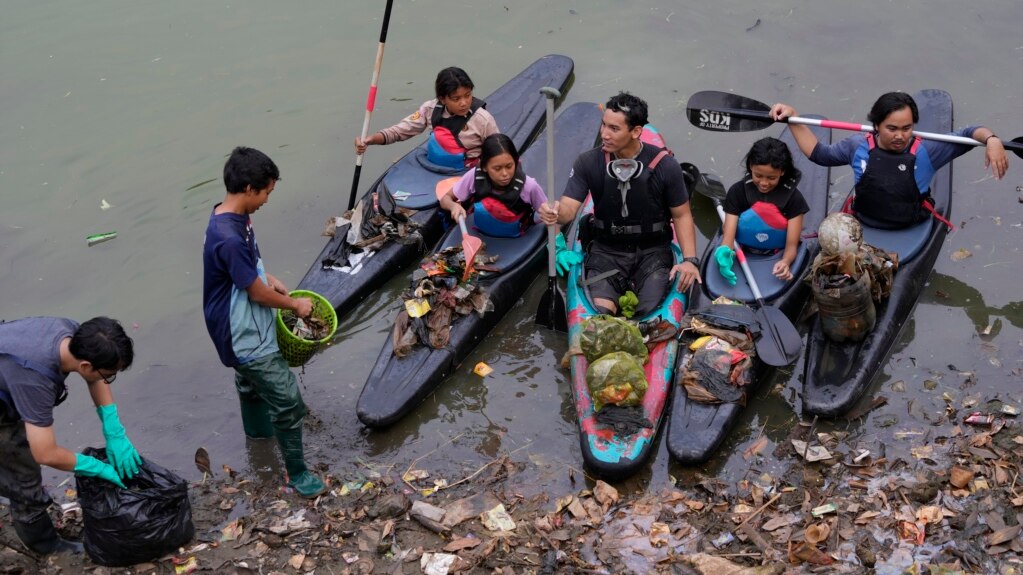Children in the Indonesian city of Bogor are cleaning up a local lake on their own.
The young people take small boats, called kayaks, out on the water. They direct the kayaks toward floating trash. They remove the trash from the water and place it in their boats. Later, on land, all the trash is examined and dealt with.
About 20 children take part in the effort to fight pollution but it began with one boy. Ten years ago, Giri Marhara decided to start cleaning up the lake. He was just 16 years old at the time and had a habit of cleaning up his environment.
Young people like Marhara have been at the front of environmental and climate change movements in recent years. Movements like school strikes for climate action, protests at United Nations climate talks, and local clean ups have often been youth-led.
The small-scale campaigns in Indonesia have been popular with younger people, gaining support and attention.
“For me, cleaning up is catharsis, cleaning up is refreshing,” said Marhara. He said children playing nearby would often ask if they could help him with lake clean up.
They formed a group last year, called the Situ Gede Cleanliness Warrior, named after the lake. They boat across the lake, pick up trash, and identify what can be recycled.
Marhara and his friends have collected more than 2,700 kilograms of trash in and around the Situ Gede lake.
The trash problem in Indonesia is widespread. Its Environmental and Forestry Ministry says the country produced more than 35 million tons of waste last year. It estimates that 35 percent of waste in the country is unmanaged. Garbage along roadways, waterways and natural environments is a common sight.
Waste is also responsible for around 3 percent of global greenhouse gas emissions, says the World Resources Institute. Much of that comes from food waste. If left to decompose in landfills, food waste can release methane. The gas warms the planet and is around 80 times stronger than carbon dioxide.
The trash problem has raised health concerns: Plastic waste, for example, gets broken down into tiny pieces called microplastics, which can enter the human body. Studies suggest it can damage the endocrine, nervous and immune systems, and can carry an increased risk of cancers.
There are alternatives to landfill or littering for some waste products: food waste can be composted, for example. Some other types of waste, like certain types of plastic, can be reused or recycled. But environmentalists also say the world needs to make less waste in the first place, as much of it ends up in landfills or in the world's oceans.
But as waste continues, youth-led clean ups can still make an impact, even if it is just for small areas or communities.
Marhara believes that lasting change will require ending “behavior that is causing trash to be out there in the environment," he said, saying the country has a “littering culture.”
“I think that the only way to counter that culture is by developing a counterculture,” a clean up culture, he said.
I’m Dan Novak.

